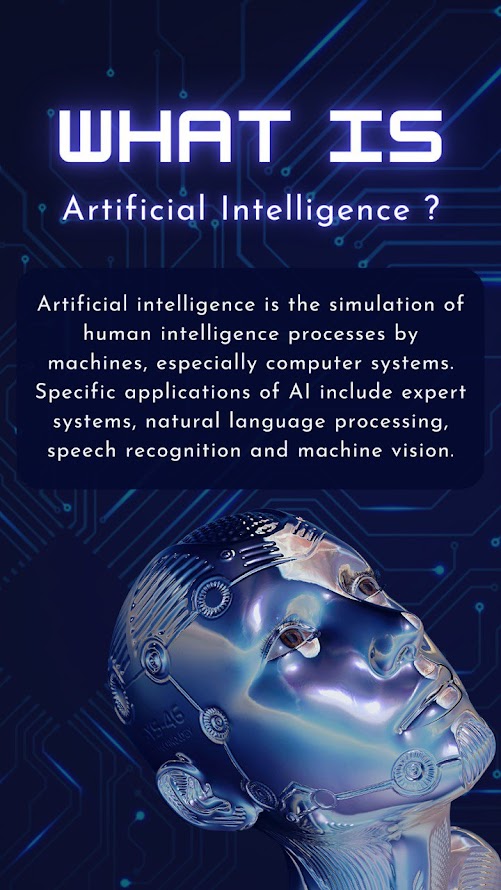Industrial Revolution 5.0
Industrial Revolution 5.0 represents the latest phase of industrial transformation, which is marked by advanced technologies like artificial intelligence, robotics, and the Internet of Things. This era focuses on integrating smart technologies into various industries, enhancing efficiency, connectivity, and automation on a global scale.
When considering how the industrial revolution 5.0 differs from industrial revolution 4.0 we can see that the Industrial Revolution 5.0 builds upon the advancements of Industrial Revolution 4.0 by incorporating more sophisticated technologies and expanding their integration. While Industrial Revolution 4.0 introduced concepts like automation, data exchange, and smart systems, Industrial Revolution 5.0 further refines these ideas with enhanced artificial intelligence, advanced robotics, and a deeper integration of digital technologies into various aspects of industry and society. Essentially, Industrial Revolution 5.0 represents a more evolved and interconnected stage of technological innovation compared to its predecessor.
Artificial Intelligence (AI)
Artificial Intelligence (AI) is a field of computer science that focuses on creating intelligent machines capable of performing tasks that typically require human intelligence. These tasks include learning from experience, understanding natural language, recognizing patterns, and making decisions. AI aims to develop systems that can solve problems, adapt to new situations, and improve their performance over time, mirroring aspects of human cognitive functions.
In Industrial Revolution 5.0, Artificial Intelligence (AI) plays a major role in transforming industries. AI technologies, such as machine learning and advanced robotics, are employed to enhance automation, optimize processes, and enable smart decision-making. By integrating AI into various aspects of production and management, Industrial Revolution 5.0 aims to improve efficiency, increase productivity, and foster innovation across different sectors, marking a significant evolution in the way industries operate and evolve.
Author: W.V.A.A.S. Rodrigo (204457)

.webp)



AI plays a crucial role in Industrial Revolution 5.0 by driving innovation, automation, and efficiency in various industries. It has the potential to transform manufacturing processes, optimize supply chains, and enhance productivity. AI technologies, such as machine learning and robotics, enable smart factories and autonomous systems that can adapt to changing conditions and make real-time decisions. This not only improves operational efficiency but also creates new opportunities for economic growth and job creation. AI in Industrial Revolution 5.0 empowers industries to embrace advanced technologies and achieve sustainable development. - T.N.G.Perera (204391)
ReplyDeleteThis comment has been removed by the author.
ReplyDeleteIndustry 5.0 brings together highly skilled workers and collaborative robots (COBOTS) to function side-by-side. This evolved hybrid of Machines and Humans is equipped with sensors, actuators, and AI-powered controllers, allowing the workforce to function next to cutting-edge technology in a much safer environment.
ReplyDeleteUGL Maduwantha (204324)
This comment has been removed by the author.
ReplyDeleteThe integration of AI in Industrial Revolution 5.0, exemplified by predictive maintenance, underscores its transformative impact. By employing AI-driven analytics, industries can predict equipment failures before they occur, minimizing downtime and enhancing operational efficiency, thereby showcasing the power of intelligent systems in revolutionizing traditional maintenance practices. Further, Al acts as a catalyst for innovation, efficiency, and productivity, reshaping the industrial landscape and driving industries toward a more intelligent and interconnected future.
ReplyDeleteM.D.S.K.Perera (204389)
AI plays a significant role in Industrial Revolution 5.0 by enabling automation, optimization, and intelligent decision-making in various industries. It helps improve efficiency, productivity, and accuracy by analyzing vast amounts of data, predicting patterns, and optimizing processes. AI-powered technologies like machine learning and robotics revolutionize manufacturing, logistics, healthcare, and more. They can enhance supply chain management, predictive maintenance, quality control, and customer experience. AI empowers businesses to adapt to changing market demands and drive innovation in the digital era.
ReplyDeleteA.O.R. Perera 204380
The integration of Artificial Intelligence (AI) in Industrial Revolution 5.0 represents a transformative leap in the convergence of digital technologies and industry. AI is expected to be a central driving force, powering intelligent automation, data-driven decision-making, and fostering collaborative ecosystems between humans and machines. This revolution is likely to redefine industrial processes, enabling greater flexibility, customization, and efficiency while posing challenges related to workforce adaptation, ethics, and cybersecurity that require careful consideration and management. Overall, the synergy of AI and Industrial Revolution 5.0 holds the potential to reshape industries globally and drive unprecedented advancements in manufacturing and technology.
ReplyDeleteArtificial intelligence is a cornerstone of Industrial Revolution 5.0, catalyzing unprecedented advancements by seamlessly integrating smart technologies, automation, and data-driven decision-making, thereby transforming industries and shaping the future of work.
ReplyDelete